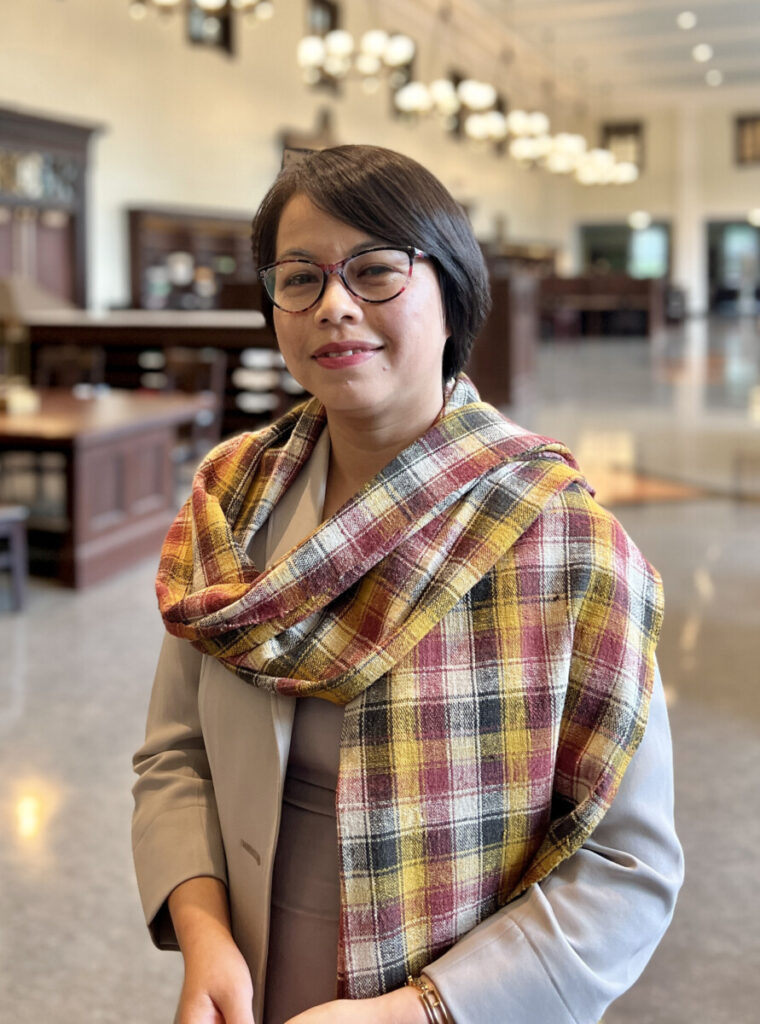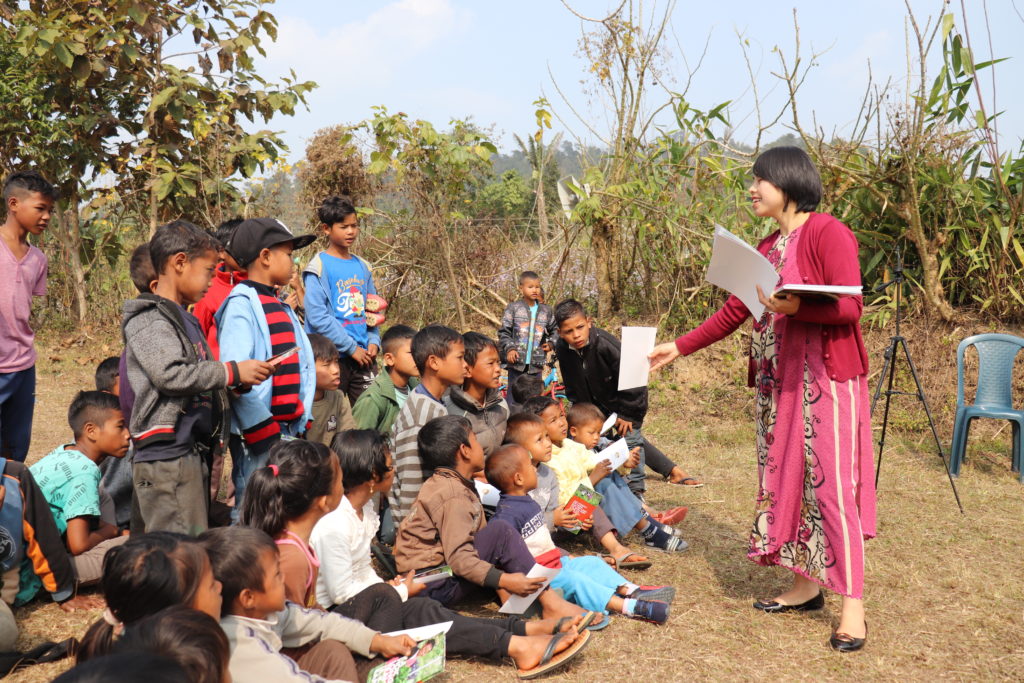
“By taking into account the cultural components of health we can understand how traditional knowledge can be leveraged for good health.”
Emory University was delighted to welcome Dr. Melari Shisha Nongrum as the Fulbright-Nehru Visiting Chair for the Spring 2024 semester. Dr. Nongrum is an Associate Professor from the Indian Institute of Public Health Shillong. She was hosted by the Emory Global Health Institute (EGHI) and also spent time with colleagues at the Rollins School of Public Health. At Emory, she worked on a pedagogical research project entitled: Insights into Tribal Health: Development of a Training Module for Health Professionals.
Dr. Nongrum’s work aims to develop a teaching module contextualizing tribal health in India and inculcating cultural sensitivities among students toward tribal communities.
The Emory Global Health Institute (EGHI) was an ideal environment for her efforts. “Public Health per se is quite interdisciplinary,” Dr. Nongrum said, reflecting on the field and the diverse specialties of her colleagues there. During her semester in Atlanta, she was able to exchange ideas with faculty members with backgrounds in Sociology, Anthropology, the Medical Sciences, and Native American Studies – all of whom brought unique perspectives to issues of Public Health.
Dr. Nongrum is sharing her work with various communities across and beyond campus. “Cultural components of health usually are not talked about – often the focus is just on the structural factors,” she explains. For her, that’s what makes talking with a wide variety of other public health experts so valuable – it enables a better approach to understanding how traditional knowledge systems can be leveraged for good health.

Fulbright Distinguished Visiting Chairs at Emory University
The Halle Institute has established four Emory Fulbright Distinguished Chair programs in collaboration with Fulbright offices and commissions in Brazil, South Africa, Korea, and India. Distinguished Chairs are innovative and dynamic scholars who spend a semester at Emory to conduct research, teach courses or workshops, and engage with Emory’s academic community. Hosted by appropriate departments in any discipline, Distinguished Chairs offer rich engagement with faculty and students. Their contributions strengthen international cooperation between their home institution and Emory, and they support Emory as a global academic community of choice for researchers across a wide array of disciplines.
Global Networks
The Fulbright Visiting Chair program is intended to support visiting scholars and Emory faculty in building their professional networks on a global scale.
Dr. Nongrum is currently writing a joint grant application with Emory colleagues to apply for a faculty seed grant from the Emory Global Health Institute for a collaborative project on traditional knowledge systems and food. Together, the team will study the interplay between local food systems, food environments and the social determinants of health.
The project is also intended to further conversations and connections between students in India and the US through collaborative projects between classrooms in Atlanta and Shillong. “One of the things I really appreciated seeing at Emory is how the university and faculty give autonomy to the students to choose some of their own ways of learning,” Dr. Nongrum said. She appreciated how this leads to more self-learning, taking advantage of what and how students want to learn, and, in the end, helps them reach the competencies outlined in the course objectives. “This way, students do not become too ‘dependent’ on faculty; they can be more proactive and decide on their own self-learning and self-growth.”